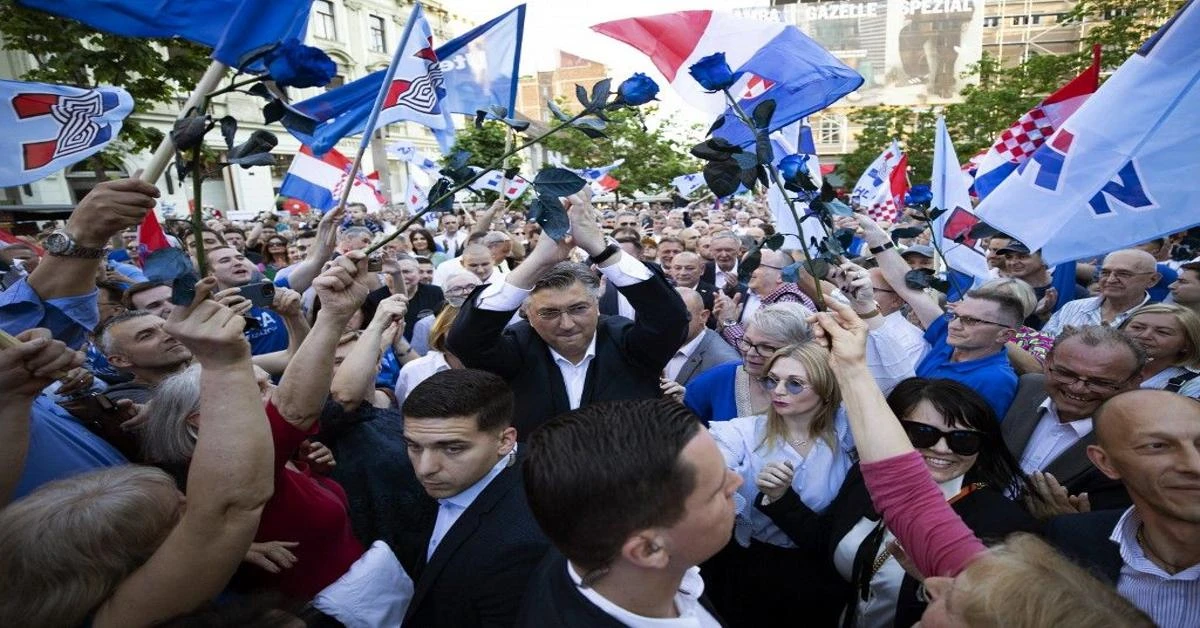Croatia braces for political turbulence ahead of crucial elections

Croatia is preparing for parliamentary elections that will have repercussions across Europe amid fierce campaign battles
Croatia, member of both NATO and European Uninon, braces for its impending parliamentary election scheduled for Wednesday, amid a turbulent campaign characterized by fiery confrontations between the nation’s key figures, precipitating a political upheaval in the Balkan state.
The upcoming ballot will witness a showdown between the incumbent conservative Croatian Democratic Union (HDZ), under the leadership of Prime Minister Andrej Plenkovic, and a coalition of centrist and leftist factions, loosely spearheaded by populist President Zoran Milanovic and his Social Democratic Party (SDP).
The upcoming elections carries significant implications, not only for the Croatia but also for Europe, amid ongoing concerns over instability stemming from Russia’s incursion into Ukraine.
Geopolitical consequences: Potential pro-Russian influence
Should the HDZ retain power, prospects for sustained political stability would be upheld, aligning Croatia with a pro-Western trajectory and bolstering its support for Ukraine in its resistance against Russian aggression.
However, a possible success for the SDP could pave the way for victory in both the European Parliament elections scheduled for June and the presidential elections in December.
Such an outcome has the potential to disrupt the long-standing hegemony of the HDZ in the country’s political landscape. Moreover, it could create an environment conducive to increased pro-Russian influence in Croatia, in line with the political dynamics observed in neighboring Hungary and Slovakia.
Croatia has been largely governed by the HDZ since its independence from Yugoslavia in 1991. Having joined the European Union in 2013, Croatia has recently entered the EU’s passport-free travel zone and adopted the euro currency.
After setting the election date and announcing his surprise candidature for prime minister, Milanovic began campaigning on behalf of the SDP. However, judges of the Croatian Constitutional Court stepped in and ruled that the move was unconstitutional.
The judges said the president could not run for prime minister, participate in the upcoming parliamentary elections, or campaign in favor of any party unless he resigned.
Milanovic refused, blatantly ignoring the top court and continuing to campaign in favor of the left alliance. He accused Plenkovic and the HDZ of widespread corruption and “grand theft” of state funds, referring to past and present scandals, some of which have been brought before the courts, but Plenkovic denied the accusations.
The election was played out as the final chapter in the long-running rivalry between Plenkovic and Milanovic. Milanovic’s use of colorful insults against his opponents and critics offended many, but Milanovic, the most popular politician in the polls, speaks openly and uses plain words, unlike the more reserved Plenkovic.
Plenkovic, a former diplomat like Milanovic, accused his opponent, whom he considered to have acted irresponsibly, of steering Croatia toward the “Russian World”.
Plenkovic also claimed that Milanovic was unfit for public office, describing him as a source of negativity that harms Croatia and its people.
Pre-election polls showed the HDZ with a comfortable lead but predicted that it did not have enough seats to secure sole power. The opposition on the left could capitalize on public discontent over issues such as high inflation and economic stagnation, which are common in many EU member states. The participation of smaller parties at both ends of the political spectrum could be crucial in the HDZ and SDP’s pursuit of power.
Source: AP



